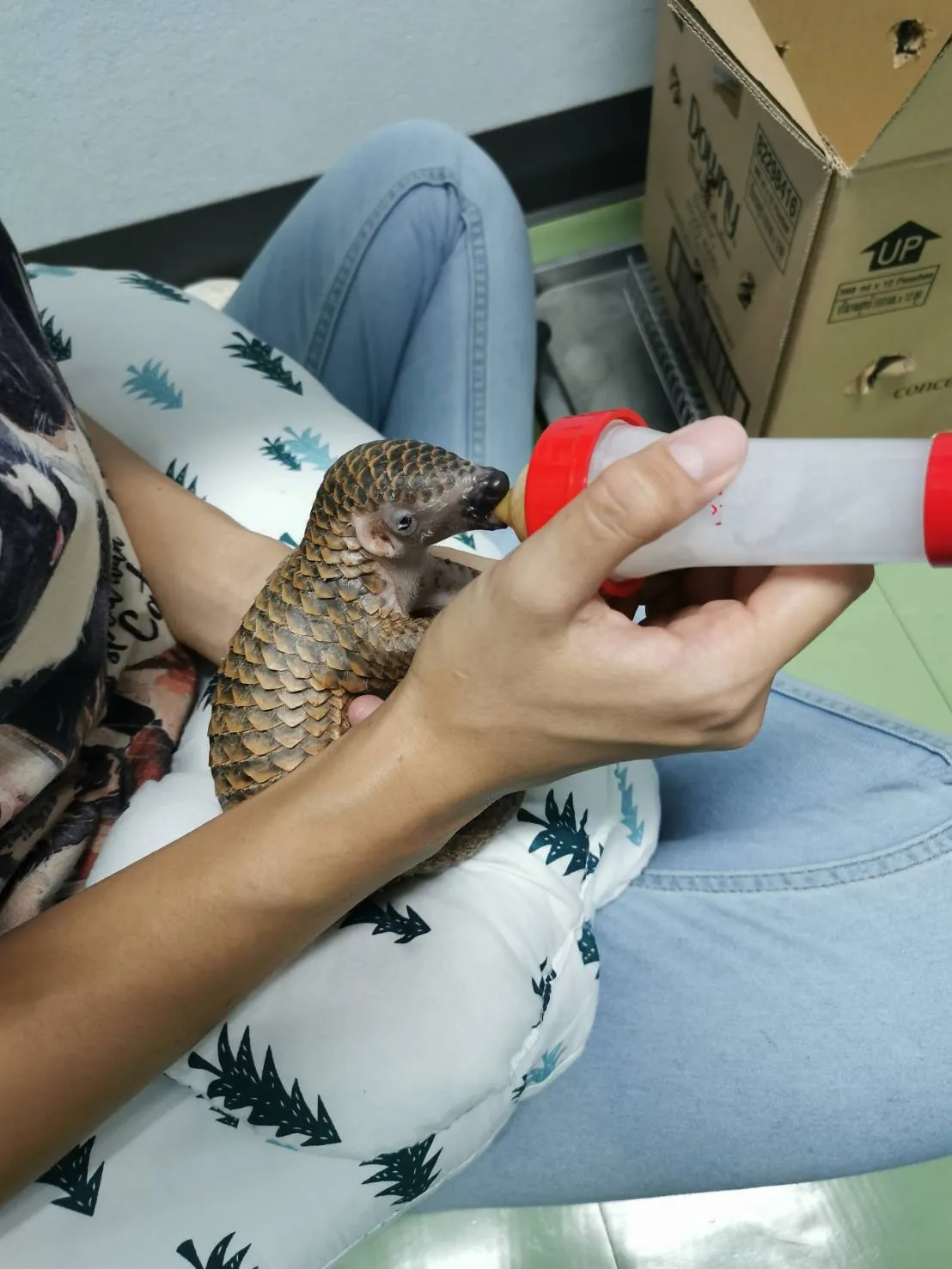Last month, a villager in Thailand discovered a weak and alone baby Sunda pangolin by a roadside. Conservationists, including an in-country team from the Zoological Society of London (ZSL), Thailand’s Department of National Parks, Wildlife and Plant Conservation, and a wildlife vet from Mahidol University, were alerted and dispatched to care for the baby pangolin.
At first, they thought the pangolin might not survive. Named Hope by the team, he was only the size of a kitten and estimated to be a month old when rescued, and it was the first infant that the ZSL team had cared for.
“It’s been an anxious few weeks for the ZSL team taking care of Hope,” says ZSL conservationist Dr Eileen Larney. “It’s certainly been a steep learning curve – getting him to accept bottle-feeding and making sure he has 24-hour care. ZSL consults with pangolin experts globally and are fortunate to work in close partnership with Mahidol’s local wildlife veterinary team to provide the best care possible.”
“After being given this precious second chance - something many of his species do not - we’re now assessing whether Hope can be released into the wild, but even there, like all pangolins, he sadly faces an uncertain future.”

Since being taken into care, Hope has gained weight and has practised his climbing skills, and the team hope that they will be able to release him into a safe and monitored location in the wild.
Hope is the third pangolin to be rescued through ZSL's 'Pangolin Protector' network, following the previous rescue and release of two females.

The Sunda pangolin is listed as Critically Endangered on the IUCN Red List, and is one of eight pangolin species. All pangolins are threatened with extinction and are through to be the most trafficked animals in the world.
Six tonnes of pangolin scales, representing up to 10,000 individual animals were seized last month in Malaysia. Estimates suggest that more than 300 pangolins are poached from the wild every day.
Learn more about pangolins:
- Pangolin guide
- Long Read: The scaly enigma of pangolins, and how that could help save them
- News (2019): Rescued pangolin released back into the wild
“During the COVID-19 pandemic, much has been made of the importance of wild animals, such as pangolins, as sources of pathogens that can jump into new species, including human beings,” says ZSL scientist Professor Andrew Cunningham, a globally respected authority on wildlife health.
“However, wild animals are not the problem - they don’t cause disease emergence, people do. At the root of the problem is human behaviour and it's only by recognising this that we can investigate what the risky behaviours are and change these so that human behaviour becomes the solution.”
Main image: Hope the baby Sunda pangolin being bottle-fed. © ZSL/Mahidol University
